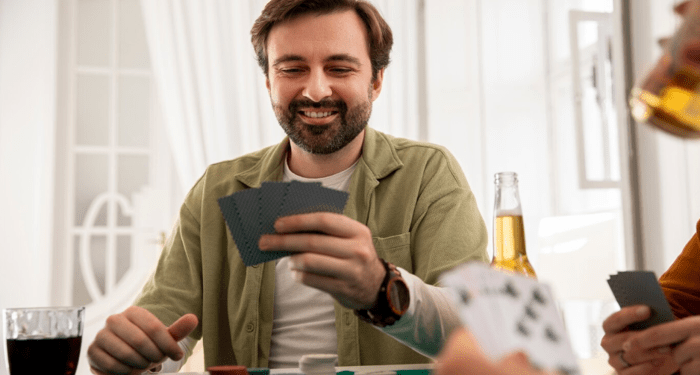The digital age has amplified stress in everyday life. With constant notifications, urgent messages, and the pressure to multitask, many people look for ways to slow down. Some turn to meditation or streaming platforms, while others seek peace in less obvious places. The solitaire game, a digital staple for decades, has quietly stood the test of time by offering calm and structure in the middle of chaos. More than a casual distraction, it has evolved into a reliable form of mental relief for people across different backgrounds and routines.
The Simplicity of Solitary Focus
At its core, the solitaire game is not complicated. It doesn’t require fast reflexes, advanced graphics, or multiplayer connections. This is part of what makes it so effective in lowering stress. The layout is familiar and consistent. Players interact with a deck of cards, working through a predictable structure that creates both challenge and order. Each move is calculated and purposeful, without the noise of modern mobile games.
The simplicity of solitaire helps ground the mind. It’s structured enough to engage the brain but not overwhelming. This balance supports a meditative rhythm. Players often find themselves entering a state of quiet concentration, where external concerns take a back seat. That mental shift allows the nervous system to reset. As attention narrows to organizing cards and planning sequences, thoughts slow down and stress fades into the background.
Unlike high-stimulation games designed to hook users into long, adrenaline-pumping sessions, solitaire promotes stillness. It doesn’t shout for attention or push notifications. It waits, inviting players in only when they’re ready. That kind of patience in a digital activity is rare, and it’s why solitaire continues to appeal in high-stress environments. It’s not about escaping reality it’s about restoring calm within it.
Accessibility Without Pressure
Modern solitaire platforms offer instant access without the demands of downloads or registration. This means people can play without the commitment or complications often found in digital entertainment. That low barrier to entry removes stress before the game even begins. The solitaire game is ready when you are, and it doesn’t demand anything more than a moment of your time.
This flexibility makes it ideal for spontaneous mental breaks. Whether at a desk, waiting in line, or unwinding before bed, players can access a solitaire game in seconds. The absence of noise, ads, and social competition preserves the experience. There’s no pressure to win, no fear of losing in front of others, and no consequence to closing the window and walking away.
These features position solitaire as a gentle form of control in a world that often feels unpredictable. Every game begins the same way. The deck is shuffled, the tableau is laid out, and the player starts again with a clean slate. That repeatable rhythm delivers comfort. It mirrors other routines people use to regulate stress, like organizing a desk or making a morning cup of coffee. The repetition becomes soothing, not dull, and that’s what makes it restorative.
In contrast to fast-moving entertainment that exhausts attention, solitaire respects mental bandwidth. It doesn’t attempt to overwhelm. Instead, it offers enough mental stimulation to stay engaged, allowing players to reach a soft mental flow where their internal dialogue quiets. The game provides structure without noise, and that balance is key in managing daily mental load.
A Game That Respects the Player
The solitaire game doesn’t promise excitement or revolution. It promises calm. That’s why people return to it again and again, especially during stressful moments. It respects time, attention, and emotional state. When everything else demands more more clicks, more data, more time solitaire offers less. And that becomes its greatest strength.
It allows for private play. There’s no scoreboard broadcast, no online profile, and no reminders to log back in. You can lose five times in a row, close the game, and no one will know. That anonymity removes performance anxiety. There’s freedom in making mistakes without judgment. That freedom reduces mental pressure and allows people to focus on the process rather than the result.
For some, the game becomes a ritual. A way to start the day, pause between tasks, or wind down in the evening. These moments of play are not wasted time they are small acts of recovery. They help regulate attention, lower the heartbeat, and return focus to the present. Each card flipped becomes part of a quiet, self-guided meditation.
Even the visuals play a role. Most solitaire games are designed with clean lines, neutral tones, and minimal movement. There are no flashing banners or chaotic transitions. The space feels open and manageable, helping to reduce visual clutter that contributes to stress. Players aren’t pulled in ten directions they’re focused on one task at a time, which creates calm.
Gentle Engagement in an Overloaded World
Modern life places enormous cognitive demands on people. From the moment a phone buzzes in the morning to the last email of the night, the brain is asked to respond, adapt, and process constantly. That nonstop stream creates fatigue. Finding ways to disconnect without losing engagement becomes essential for mental well-being. The solitaire game meets that need better than most digital alternatives.
It invites the mind to slow down. To think one move ahead, not fifty. To work within clear boundaries and trust that a solution may unfold if the process is followed. This kind of problem-solving isn’t stressful it’s soothing. It gives the brain something to do that doesn’t result in mental overload.
Solitaire holds space for those who need a moment to breathe without retreating from the world entirely. It’s a short pause, not an escape. That makes it useful during work breaks, study sessions, or restless evenings. It doesn’t just entertain it stabilizes.
And as more people seek to create small routines that support mental health, solitaire continues to prove its value. It doesn’t replace therapy, exercise, or community, but it plays a quiet supporting role in many people’s emotional maintenance. A few minutes spent organizing a digital deck can leave the mind more settled than it was before, ready to return to daily challenges with a steadier outlook.











